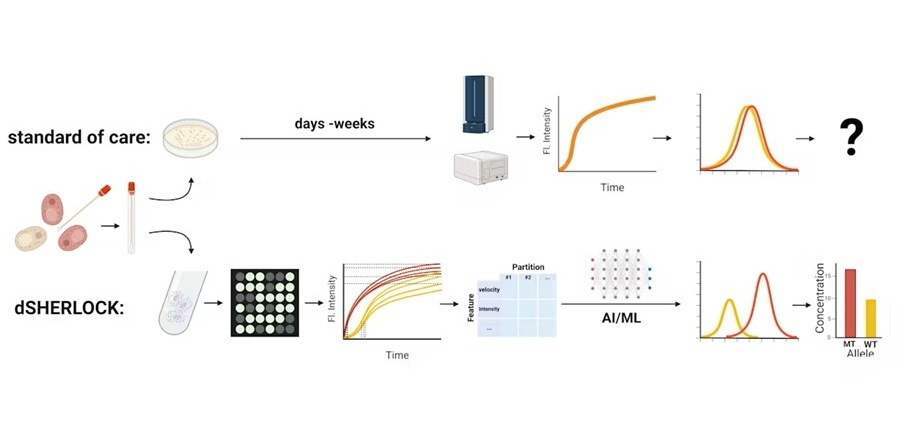New PCR Variants Evaluated for Global Diagnostics of Leishmaniasis
By LabMedica International staff writers
Posted on 05 Nov 2014
A study of three new PCR variants based on the leishmanial hsp70 gene, evaluated directly on clinical samples, has demonstrated the new tools to be globally applicable for Leishmania species-level typing in various geographical, clinical, and sampling contexts. Posted on 05 Nov 2014
In the diagnosis of leishmaniasis, identification of the causative Leishmania species is also important for treatment and prognosis, as well as for epidemiology (including documentation of sympatric and imported species), identification of new non-human reservoir hosts, and for establishing the link in cases of treatment failure. Three new PCR variants based on the hsp70 (heat-shock protein 70) gene had recently been developed and validated directly (without the need for culturing) on New World clinical samples from Peru.
![Image: Leishmania detection sensitivity – Percentage of positivity in the different hsp70-PCRs (G, F, N, C), evaluated in the total of 98 clinical pre-confirmed cutaneous or visceral leishmaniasis case samples (All) and in different subsets (Bone marrow, Blood/BC[buffy coat], Lymph node, Skin biopsy) (Phot courtesy of Montalvo et al., September 2014, and the journal Diagnostic Microbiology and Infectious Disease). Image: Leishmania detection sensitivity – Percentage of positivity in the different hsp70-PCRs (G, F, N, C), evaluated in the total of 98 clinical pre-confirmed cutaneous or visceral leishmaniasis case samples (All) and in different subsets (Bone marrow, Blood/BC[buffy coat], Lymph node, Skin biopsy) (Phot courtesy of Montalvo et al., September 2014, and the journal Diagnostic Microbiology and Infectious Disease).](https://globetechcdn.com/mobile_labmedica/images/stories/articles/article_images/2014-11-04/MMS-122.jpg)
Image: Leishmania detection sensitivity – Percentage of positivity in the different hsp70-PCRs (G, F, N, C), evaluated in the total of 98 clinical pre-confirmed cutaneous or visceral leishmaniasis case samples (All) and in different subsets (Bone marrow, Blood/BC[buffy coat], Lymph node, Skin biopsy) (Phot courtesy of Montalvo et al., September 2014, and the journal Diagnostic Microbiology and Infectious Disease).
Now, an international team, led by Prof. Gert Van der Auwera of the Institute of Tropical Medicine (ITM) at Antwerp (Belgium), has evaluated the performance of these PCRs on a set of 133 pre-confirmed positive or negative clinical samples (42 cutaneous and 56 visceral leishmaniasis patients, and 35 negative cases) – all from Old World countries: Italy, Sudan, Israel, and Tunisia. Samples were retrospective (had been previously collected) and included bone marrow, blood, buffy coat, lymph node aspirates, and lesion biopsies.
Results showed that the three new PCRs were more sensitive than those previously described for hsp70, and their respective restriction fragment length polymorphism (RFLP) analyses were more efficient for species identification. Also, in 79% of the confirmed positive samples, the species could be identified directly from original sample DNA.
The study described by Montalvo AM et al. in the September 2014, issue of the journal Diagnostic Microbiology and Infectious Disease suggests that these PCRs have potential for becoming a global reference method for identification of Leishmania species in clinical specimens.
Related Links:
Institute of Tropical Medicine (ITM) at Antwerp












